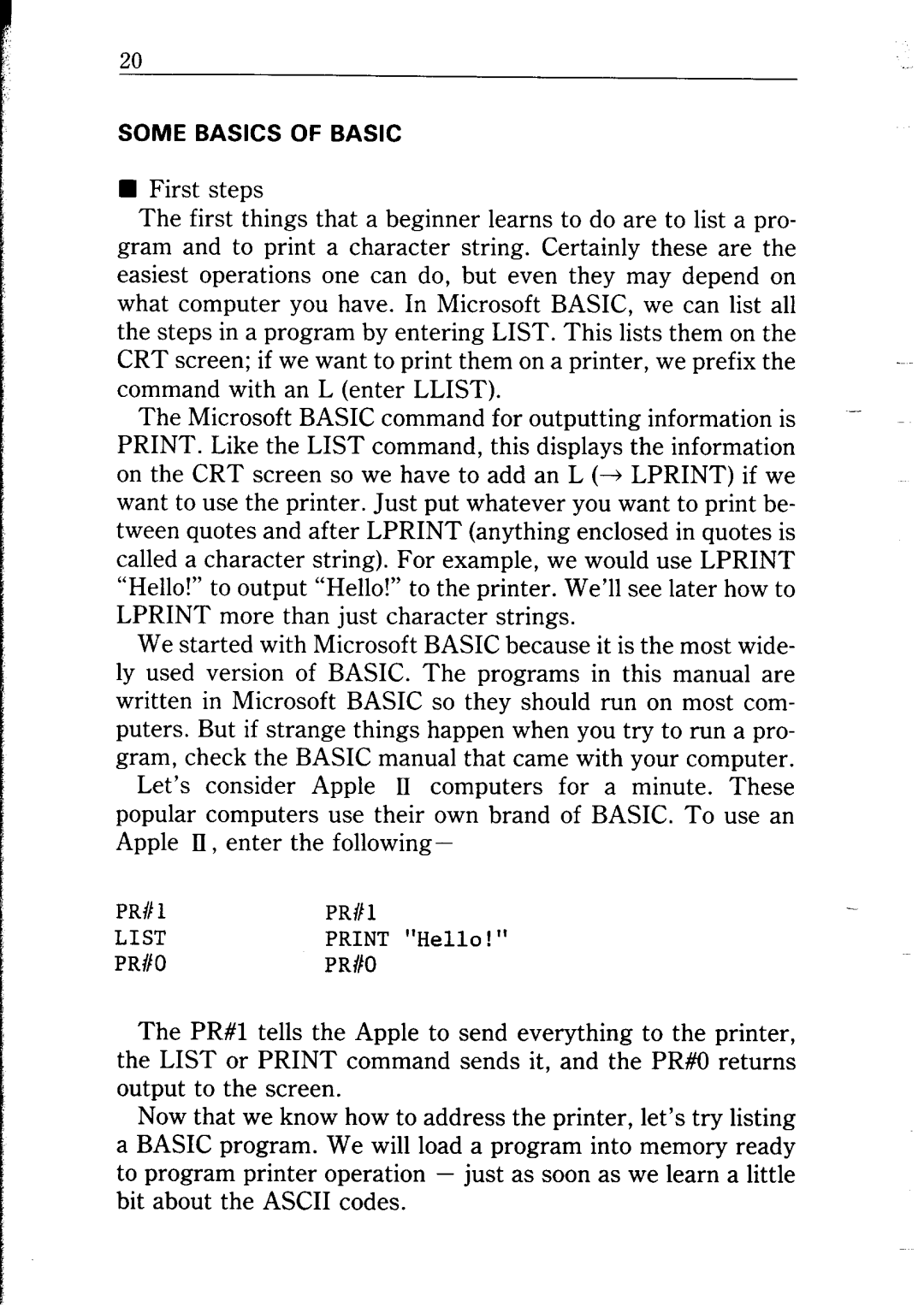
20
SOME BASICS OF BASIC
nFirst steps
The first things that a beginner learns to do are to list a pro- gram and to print a character string. Certainly these are the easiest operations one can do, but even they may depend on what computer you have. In Microsoft BASIC, we can list all the steps in a program by entering LIST. This lists them on the CRT screen; if we want to print them on a printer, we prefix the command with an L (enter LLIST).
The Microsoft BASIC command for outputting information is PRINT. Like the LIST command, this displays the information on the CRT screen so we have to add an L
We started with Microsoft BASIC because it is the most wide- ly used version of BASIC. The programs in this manual are written in Microsoft BASIC so they should run on most com- puters. But if strange things happen when you try to run a pro- gram, check the BASIC manual that came with your computer.
Let’s consider Apple 11 computers for a minute. These popular computers use their own brand of BASIC. To use an Apple II, enter the following-
PR#l | PR#l |
LIST | PRINT "Hello!" |
PR#O | PR#O |
The PR#l tells the Apple to send everything to the printer, the LIST or PRINT command sends it, and the PR#O returns output to the screen.
Now that we know how to address the printer, let’s try listing a BASIC program. We will load a program into memory ready to program printer operation - just as soon as we learn a little bit about the ASCII codes.
